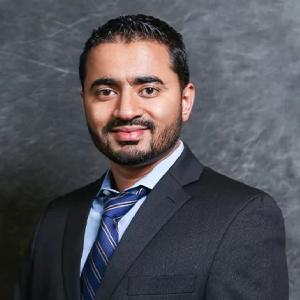How Periodontics Prevents Bone Loss
Losing bone in your jaw doesn’t just happen overnight. It’s often a slow process tied closely to gum disease. If you’ve ever wondered why dentists harp on regular checkups and cleanings, it’s because the stakes are that high. Periodontal care isn’t just about healthy gums. It’s about keeping the bone that holds your teeth strong and steady.
Let’s break it down so you know exactly how periodontics in Keller, TX, protects your bone health and how to catch issues early before they cost you a tooth or more.
Understanding the Link Between Gum Disease and Bone Loss
Here’s the deal: your teeth are anchored in your jawbone. That bone is surrounded by gum tissue, which acts like a protective seal. But when that gum tissue gets infected a condition called periodontitis it slowly starts to pull away from the teeth.
What happens next?
- Bacteria dive deep beneath the gum line
- Infection spreads
- Your body responds by breaking down bone to “fight” the infection
- Over time, this weakens the support structure of your teeth
If untreated, you don’t just lose gum you lose bone. And once that bone is gone, it doesn’t grow back on its own.
Early Detection Through Periodontal Exams
The best way to stop bone loss is to catch gum disease early. That’s where periodontal exams come in.
A periodontist or a trained dentist near you will use a small check to measure the depth of area between your teeth and gums. If those pockets are deeper than 3 mm, it could mean gum disease has set in.
Look for these warning signs:
- Gums bleed easily when brushing
- Persistent bad breath
- Gums that look puffy or pull away from your teeth
- Shifting or loosening teeth
Even if you’re not in pain, silent damage might be happening under the surface.
Deep Cleaning: Scaling and Root Planing
Once gum disease starts, brushing and flossing won’t be enough. You’ll need a deeper clean.
This is where scaling and root planing step in.
What happens during this treatment?
- Scaling eliminates plaque and tartar from above and under the gum line
- Root planing smooths the tooth roots so gums can reattach more easily
This gives your gums the chance to cure and reduces the inflammation that eats away at bone.
Bonus Tip: This procedure can often be done under local anesthetic, and recovery is quick for most people.
Surgical Treatments That Preserve Bone
Sometimes, deep cleaning isn’t enough. If bone loss has already occurred, your periodontist may recommend surgical options to stop further damage.
Common surgical treatments include:
- Flap surgery – Lifting the gums to clean deeper infection areas and re-seal them tighter
- Bone grafts – Using your own bone or synthetic materials to rebuild the jawbone
- Guided tissue regeneration – Encouraging new bone growth with special membranes
- Tissue-stimulating proteins – Applied directly to the root surface to help regrow bone and tissue
While surgery may sound scary, modern techniques are far more comfortable than you think. These treatments could be the difference between keeping your teeth or needing replacements like dental implants Keller, TX residents often rely on.
Ongoing Maintenance and Monitoring
Stopping bone loss isn’t a “one and done” process. Once you’ve had gum disease, you’re more prone to flare-ups. That’s why consistent monitoring is key.
After your initial treatment:
- Expect more frequent cleanings often every 3–4 months
- X-rays may be taken regularly to check bone levels
- Your dentist will keep a close eye on pocket depths and gum health
A few simple at-home habits go a long way:
- Use a soft-bristled toothbrush (manual or electric)
- Floss daily, even if your gums bleed at first
- Use an antimicrobial rinse
- Avoid smoking it slows healing and worsens bone loss
Prevention is easier than repair. The sooner you catch and manage gum issues, the better your chances of keeping your teeth for life.
Why This Matters—Beyond Just Teeth
Bone loss in the jaw can cause:
- Loose or shifting teeth
- Dentures that no longer fit well
- Premature facial sagging and aging
- Difficulty eating and speaking
But it doesn’t have to get to that point. Working with a skilled provider like Highland Oaks Family Dentistry ensures your oral health supports your total health for years to come.
Final Thoughts
Bone loss might sound like something that only happens to seniors, but it can start in your 30s or even earlier—especially if gum disease goes untreated. The good news? With the right periodontal care, you can stop the damage in its tracks.
If you’ve noticed swollen gums, bleeding when you brush, or feel like your teeth are shifting it’s time to take action. Periodontics offers not just treatment, but protection. And when your jawbone is strong, so is your smile.
Whether you’re already seeing signs of trouble or just want peace of mind, book a periodontal exam today with your trusted dentist near you. Don’t wait for symptoms to get worse. Prevention, early action, and proper care can save your smile and your bone structure.


